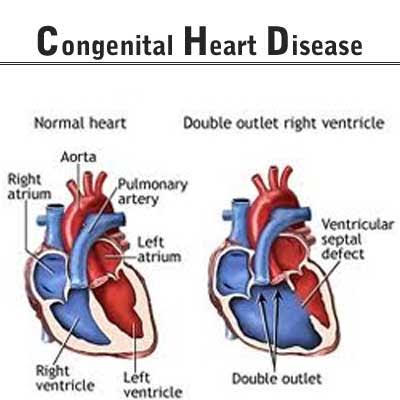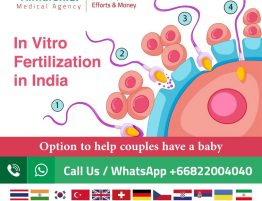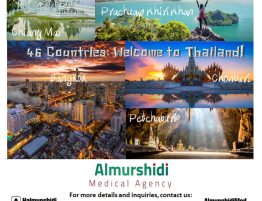
Congenital heart disease is a general term used to refer to a series of birth defects that affects the heart. The problem can affect:
- The heart walls
- The heart valves
- The blood vessels
They can disrupt the normal flow of blood through the heart. The blood flow can slow down, go in the wrong direction or to the wrong place, or be blocked completely.
There are numerous types of congenital heart defects. They can range from simple conditions that don’t cause symptoms to complex problems that cause severe, life-threatening symptoms.
Advances in diagnosis and treatment mean most babies who once died of congenital heart disease survive well into adulthood. However, signs and symptoms of the condition can occur in adults later in life, even those who had treatment as a child.
Causes
Doctors don’t always know why a baby has a congenital heart defect. They tend to run in families.
Things that make them more likely include:
- Taking certain medications, alcohol or drug abuse during pregnancy
- Problems with genes or chromosomes in the child, such as Down syndrome
- A viral infection, like rubella (German measles) in the mother in the first trimester if pregnancy
Types
Most congenital heart problems are structural issues like holes and leaky valves. For instance:
Heart Valve Defects – one may be too narrow or completely closed. That makes it hard for blood to get through. Sometimes, it can’t get through at all. In other cases, the valve might not close properly and the blood leaks backwards.
Problems with the heart’s “walls” – it could be the ones between the chambers (atria and ventricles) of the heart. Holes or passageways between the left and right side of the heart might cause blood to mix when it shouldn’t
Issues with the Heart’s Muscle – these can lead to heart failure, which means the heart doesn’t pump as efficiently as it should
Bad Connections among Blood Vessels – in babies, this may let blood that should go to the lungs go to other parts of the body instead, or vice versa. These defects can deprive blood of oxygen and lead to organ failure
Symptoms
It’s possible to have a heart-related birth defect and not have symptoms. If there is, they can include:
- Shortness of breath
- Problems with exercise
The symptoms of congenital heart disease in infants and children may include:
- A bluish tint to the skin, fingernails, and lips (cyanosis)
- Fast breathing and poor feeding
- Poor weight gain
- Lung infections
- An inability to exercise
- Abnormal heart rhythms (arrhythmias)
- Swelling of body tissue or organs (edema)
Risk Factors
- German Measles (rubella)
- Diabetes
- Medications
- Heredity
- Smoking
Treatments
The treatment for congenital heart disease in adults can also vary depending on the severity of the heart defect. Some people may only need to monitor their condition closely, and others may require medications and surgeries.
Medications – there are various medications that can help the heart work more efficiently. Some can also be used to prevent blood clots from forming or to control an irregular heartbeat
Implantable Heart Devices – some of the complications associated with congenital heart defects can be prevented with the use of certain devices, including pacemakers and implantable cardioverter defibrillators (ICDs). A pacemaker can help regulate an abnormal heart rate, and an ICD may correct life-threatening irregular heartbeats
Catheter Procedure – catheterization techniques allow doctors to repair certain congenital heart defects without surgically opening the chest and heart
Open-Heart Surgery – This type of surgery may be needed if catheter procedures aren’t enough to repair a congenital heart defect. A surgeon may perform open-heart surgery to close holes in the heart, repair heart valves, or widen blood vessels.
Heart Transplant – In the rare cases in which a congenital heart defect is too complex to fix, a heart transplant may be needed. During this procedure, the child’s heart is replaced with a healthy heart from a donor.
What We Offer
We at Almurshidi Medical Tourism will find the best doctors to cater to your needs. We are partnered with a wide network of hospitals and clinics that provide top quality medical experience.
We provide free medical estimates, make medical appointments, and provide several medical opinions if needed at no cost.
Contact Us
For more information contact us at +66822004040 or via WhatsApp





